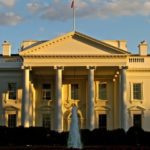A Canadian civil rights organization is calling for a temporary ban on the use of facial recognition in the country. The Canadian Civil Liberties Association (CCLA) believes a suspension will give legislators time to catch up with the latest technological advancements, and argues that the moratorium should last until meaningful privacy protections are put in place.

“We are seeing an explosion of Facial Recognition Technology, but we are seeing no corresponding rise in oversight,” said CCLA Director Brenda McPhail. “In Canada, there have been clear abuses of this technology and as this evolves further – and more private sector and governmental organizations deploy it, we need Canadians to understand the risks to their privacy and the pitfalls of the technology.”
The CCLA went on to detail some of those abuses, the most noteworthy of which relates to the ongoing Clearview AI scandal. The Toronto police have acknowledged that several officers used the controversial facial recognition system without informing their superiors, while the RCMP declared that it would continue to use the system despite the backlash from the public. Clearview has since suspended all of its contracts in Canada in response to a series of federal and provincial privacy investigations.
Some of the CCLA’s other examples come from the private sector. For instance, Canadian privacy commissioners recently censured Cadillac Fairview for installing facial recognition cameras at 12 shopping malls across the country, and for using those cameras to gather the biometric data of more than 5 million Canadians. The commercial real estate company did not take adequate steps to inform shoppers and obtain their consent before using the technology.
With that in mind, the proposed moratorium would cover both the public and private sectors. The CCLA noted that Canada’s current privacy laws are relatively underdeveloped, insofar as they do not specifically address the use of facial recognition. The organization suggested that the municipal and state-level bans that have been passed in the United States could serve as a template for future facial recognition legislation in the country.
Source: IT World Canada
–
January 2021 – by Eric Weiss







Follow Us